Jerome Richardson was an American jazz musician and woodwind player. He played the soprano saxophone, alto saxophone, tenor saxophone, baritone saxophone, bass saxophone, soprano clarinet, alto clarinet, bass clarinet, piccolo, western concert flute, soprano flute, alto flute, tenor flute, and bass flute. He played with Charles Mingus, Lionel Hampton, Billy Eckstine, The Thad Jones/Mel Lewis Orchestra, Kenny Burrell, and later with Earl Hines' small band.

Frank Wellington Wess was an American jazz saxophonist and flutist. In addition to his extensive solo work, Wess is remembered for his time in Count Basie's band from the early 1950s into the 1960s. Critic Scott Yanow described him as one of the premier proteges of Lester Young, and a leading jazz flutist of his era—using the latter instrument to bring new colors to Basie's music.
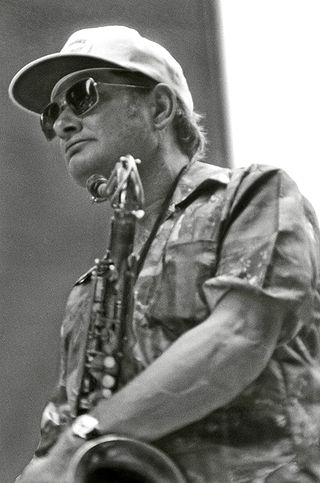
John Haley "Zoot" Sims was an American jazz saxophonist, playing mainly tenor but also alto saxophone. He first gained attention in the "Four Brothers" sax section of Woody Herman's big band, afterward enjoying a long solo career, often in partnership with fellow saxmen Gerry Mulligan and Al Cohn.

Urban Clifford "Urbie" Green was an American jazz trombonist who toured with Woody Herman, Gene Krupa, Jan Savitt, and Frankie Carle. He played on over 250 recordings and released more than two dozen albums as a soloist. He was inducted into the Alabama Jazz Hall of Fame in 1995.

Al Cohn was an American jazz saxophonist, arranger and composer. He came to prominence in the band of clarinetist Woody Herman and was known for his longtime musical partnership with fellow saxophonist Zoot Sims.
Joseph Dwight Newman was an American jazz trumpeter, composer, and educator, best known as a musician who worked with Count Basie during two periods.
James "Osie" Johnson was a jazz drummer, arranger and singer.

Charles Lawrence Persip, known as Charli Persip and formerly as Charlie Persip, was an American jazz drummer.

Nick Travis was an American jazz trumpeter.
Eddie Jones was an American jazz double bassist.
Major "Mule" Holley Jr. was an American jazz upright bassist.
Oscar Brashear was an American jazz trumpeter and session musician from Chicago, Illinois.

Quincy Jones Explores the Music of Henry Mancini is an album by Quincy Jones that contains music composed by Henry Mancini.

Smackwater Jack is a 1971 studio album by Quincy Jones. Tracks include the theme music to Ironside and The Bill Cosby Show.

The Greatest Jazz Concert in the World is a 1967 live album featuring Duke Ellington and his orchestra, Ella Fitzgerald, Oscar Peterson, T-Bone Walker, Coleman Hawkins, Clark Terry and Zoot Sims. It was released in 1975.

The Birth of a Band! is an album by Quincy Jones that was released by Mercury with performances by Zoot Sims, Clark Terry, Harry Edison, and Phil Woods.
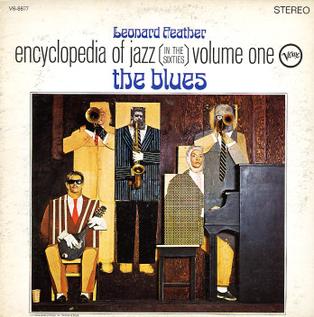
Encyclopedia of Jazz is an album released on the Verve label compiled by jazz journalist Leonard Feather featuring tracks which were recorded to accompany Feather's Encyclopedia of Jazz in the Sixties. The album features three tracks by the Encyclopedia of Jazz All Stars arranged and conducted by Oliver Nelson along with one track each by Jimmy Smith with Wes Montgomery, Count Basie and Johnny Hodges with Earl Hines.
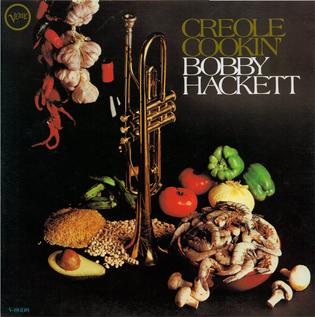
Creole Cookin', is an album by cornetist Bobby Hackett which was released on the Verve label in 1967.
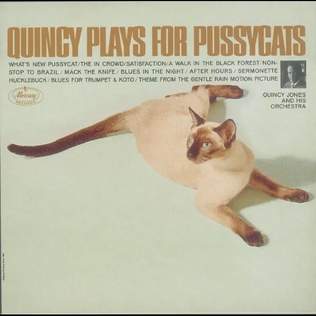
Quincy Plays for Pussycats is an album by Quincy Jones featuring sessions recorded between 1959 and 1965 which was released on the Mercury label.
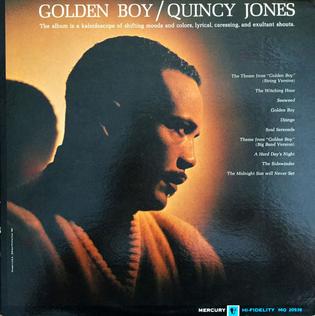
Golden Boy is an album by Quincy Jones which was released by Mercury in 1964. The album includes three versions of the theme from the musical Golden Boy with three original compositions and jazz versions of pop hits.














